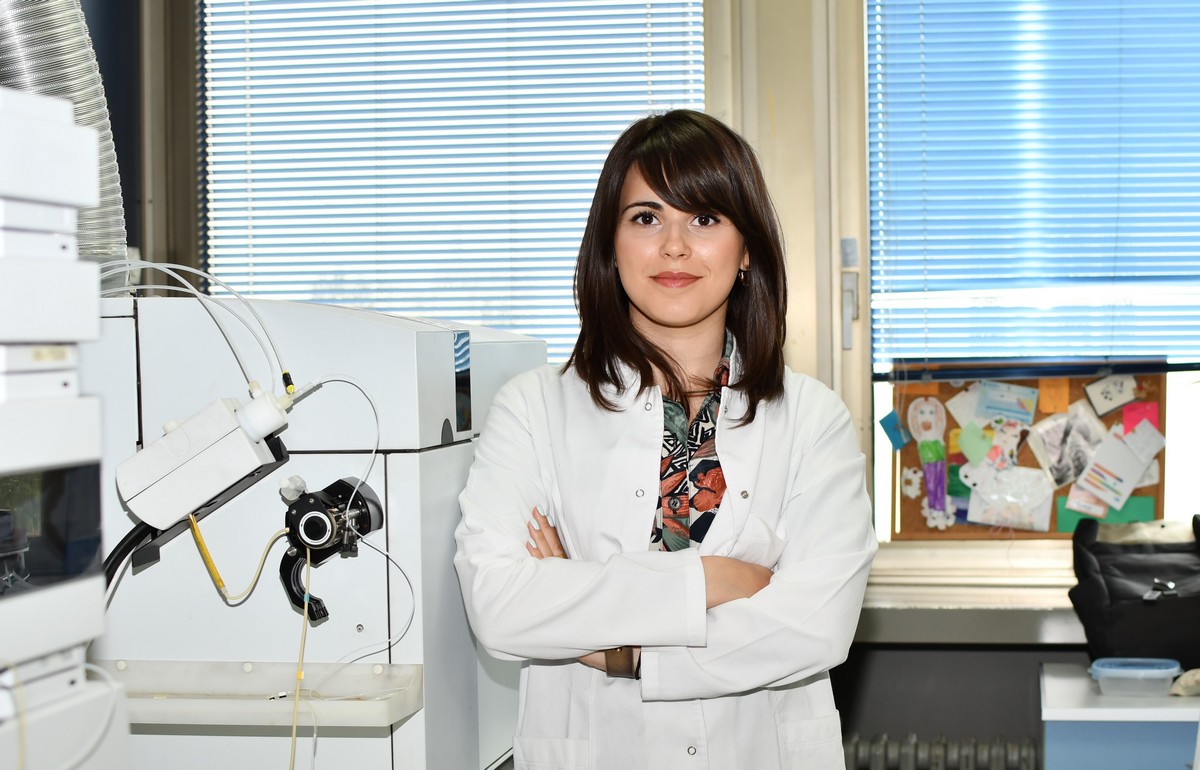Project Title
Scale up of bifunctional Fe-Mn binary oxide nanocomposite filter media: an innovative approach for water purification
Аrticle Author and Principal Investigator of the Project
Dr. Jasmina Agbaba
Full Professor, Faculty of Sciences, University of Novi Sad

One of the biggest global problems of modern society today is the increasing scarcity of Drinking water resources. The increased content of arsenic in groundwater, which is used as a basic resource for Drinking water around the world, is a serious threat to the preservation of human health. A multidisciplinary team consisting of scientists from the Faculty of Sciences, University of Novi Sad and the Institute for Multidisciplinary Research, University of Belgrade launched the NanoCompAs project in order to find an innovative, but long-term sustainable solution for removing arsenic from water. The importance of research in this area has been recognized by the Science Fund of the Republic of Serbia, which enabled the implementation of the NanoCompAs project as part of the Green Program of Cooperation between Science and Industry.
Adsorption techniques are the most commonly applied techniques for arsenic removal in Drinking water treatment due to their high economic profitability, efficiency, and technical simplicity in terms of process handling and control. Most commercially available adsorbents require pretreatment to bring arsenic into a form suitable for removal from water. However, the introduction of pretreatment increases the costs of the Drinkingwater preparation process, making it unsuitable for less developed areas, which are also the most affected by this problem. To find an efficient and economically sustainable solution, adsorbents based on highly efficient nanomaterials are being intensively developed today. One of the materials of the new generation are nanoparticles of Fe-Mn binary oxide (FMBO). These particles have already been shown to be very effective in removing arsenic in the laboratory, however, they are difficult to apply in continuous flow systems.
To overcome these shortcomings, a bifunctional nanocomposite filter media (FMBOnc) will be developed within the NanoCompAs project. In this way, the basis for commercialization of a filter product will be obtained. This filter will be suitable for continuous water treatment process applications. The next step will be to increase the production of the filter media, in order to provide sufficient quantities of material for further laboratory and semi-industrial research. Initial filter testing will include physicochemical characterization, quality control, and arsenic removal efficiency testing.
The NanoCompAs project will also explore possible solutions for extending the life of FMBOnc as well as its reuse. Depending on the needs, the possibility of stabilizing the material will be investigated before its disposal in the landfill. Research on a semi-industrial scale, which will include the treatment of a large amount of groundwater from the territory of the Autonomous Province of Vojvodina, will confirm the performance of FMBOnc in terms of arsenic removal.
As a team, we expect that the NanoCompAs project will develop a cost-effective and efficient solution for removing arsenic from Drinkingwater, which will significantly improve the health and quality of life of people living in regions affected by this problem. In addition, the results of the project will benefit decision-makers, as well as the academic community focused on environmental protection technologies.
This article was written with the financial support of the Science Fund of the Republic of Serbia. Faculty of Sciences from University of Novi Sad and Institute for Multidisciplinary Research from University of Belgrade are solely responsible for the content of this publication, and this content does not reflect the views of the Science Fund of the Republic of Serbia.
Program:
Green Program of Cooperation between Science and Industry
Project Budget:
EUR 140,503
Scientific and Research Organizations:
- Faculty of Sciences, University of Novi Sad;
- Institute for Multidisciplinary Research, University of Belgrade
Project Team Members:
- Dr. Srđan Rončević, Full Professor, Faculty of Sciences, University of Novi Sad
- Dr. Mirjana Vijatović Petrović, Principal Research Fellow, Institute for Multidisciplinary Research, University of Belgrade
- Dr. Malcolm Watson, Associate Professor, Faculty of Sciences, University of Novi Sad
- Dr. Jasna Atanasijević, Associate Professor, Faculty of Sciences, University of Novi Sad
- Dr. Jasmina Nikić, Research Associate, Faculty of Sciences, University of Novi Sad
- Dr. Maja Vujić, Research Associate, Faculty of Sciences, University of Novi Sad
- MSc Jovana Pešić, Research Assistant, Faculty of Sciences, University of Novi Sad
- MSc Jovana Jokić Govedarica, Research Assistant, Faculty of Sciences, University of Novi Sad
- MSc Đorđe Pejin, Junior Research Assistant, Faculty of Sciences, University of Novi Sad
